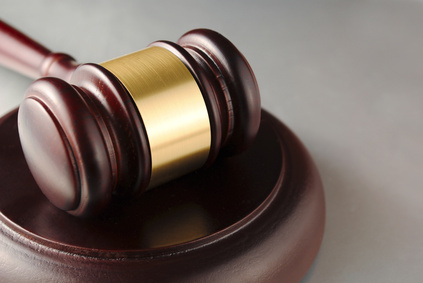Litigating a Probate in NYC
After a New York resident passes away, any property that was held in that person’s sole name
at the time of death is subject to probate under New York probate laws. During the course of the probate and estate administration, there is no way to predict how family members or other interested parties are going to react to how the decedent chose to dispose of the estate assets under the decedent’s will or to other probate administration decisions made by the executor or personal representative of the estate.
A beneficiary or other interested party may believe the will is invalid or may disagree with decisions by the personal representative regarding accountings and other financial decisions and decide to contest the will or the accountings. A creditor, business partner of the decedent or other interested party may feel that they are being treated unfairly. A beneficiary may suspect that the personal representative/executor may have breached a fiduciary duty. An unknown heir may come forward claiming they are entitled to inherit the decedent’s assets. Any one of these occurrences could trigger a probate litigation matter.

Many Probate Cases End Up in Court
Probate litigation matters are stressful and unpleasant for all parties concerned. They can cause delays, extra legal fees and Court costs and create all sorts of tensions between family members. Since emotions tend to run high in these matters, many times parties are unable to resolve the disputes on their own. They usually will hire a New York probate attorney first to try and settle the dispute. However, sometimes disputes cannot be settled without having to litigate the matter by filing a lawsuit against the estate with the New York Surrogate’s Court and having the Court resolve the matter.
Types of Probate Litigation
Probate litigation typically involves the following most common matters:
New York Will contest
Contesting a will in New York is about challenges regarding the validity of the decedent’s will are the most common probate litigation claims. Grounds for a will contest may include the decedent was mentally incompetent at the time the decedent made the will or that the decedent was under undue influence, duress, coercion or there was fraud or forgery. To prove the will is invalid, witnesses to the will may need to be called or handwriting experts hired to prove that the decedent signed the will. Medical records of the decedent may need to be obtained to establish whether the decedent was mentally competent. Other family members or friends may need to testify at the Court hearing as to the decedent’s intent or to establish whether there was fraud. Please consult with an experienced NYC will contest lawyer who will advise about options to resove your estate case.
Spousal litigation
Under New York law a spouse is entitled to an elective share right to inherit the greater of $50,000 or one-third of the estate assets, providing there was no pre-nuptial or post-nuptial agreement. Even if there was a pre-nuptial or post-nuptial agreement, a good New York probate and estate litigation attorney may be able to establish that the agreement was signed under duress. The law was established so that a decedent could not intentionally omit the other spouse from inheriting. The spousal litigation claim must be made within six months after the personal representative of the estate has been appointed.
Accounting challenges
A beneficiary, heir or other interested party to an estate is entitled to review accountings pertaining to the estate assets. When an interested party believes that the fiduciary has made bad investment choices or financial decisions, the party may challenge the fiduciary’s actions. The fiduciary may be requested to produce the accountings at Court.
Removal of fiduciary for breach of fiduciary duty
A fiduciary/personal representative owes the estate and beneficiaries a fiduciary duty. When the fiduciary breaches that duty, the petitioner can request that the Court remove the fiduciary and appoint a new personal representative. So if a fiduciary transferred estate assets to the fiduciary’s own personal bank account, that would be illegal and considered a breach of fiduciary duty. A fiduciary is personally liable for any financial losses suffered by the estate or the beneficiaries and may be ordered by the Court to pay restitution to them.
Creditor’s claim reconsideration
When a creditor believes that their claim has been wrongfully denied, the creditor may institute a lawsuit against the estate to have the claim reconsidered for payment by the personal representative out of the estate assets. Beneficiaries are not personally liable for the decedent’s debts.
Other Claims
If the decedent’s family believes the decedent’s death was the result of wrongful death action such as medical malpractice, the family will bring about a wrongful death action and any proceeds that are awarded will become part of the decedent’s estate.
Filing a Probate Litigation Claim
Probate litigation proceedings are initiated by the petitioner (party making the claim) by filing a lawsuit against the estate with New York Surrogate’s Court. Since probate litigation claims are complicated, the petitioner will generally hire a New York probate and estate litigation attorney to determine if there are sufficient grounds to file the claim and to handle the matter. The estate or personal representative will also retain the services of a NY estate lawyer to fight the claim. The New York Surrogate’s Court has the jurisdiction to hear and decide all probate litigation matters.
So if you are claiming that the will is invalid, then you will need to establish that the decedent was either mentally incompetent, under undue duress or coerced into making the will or there was fraud. You cannot just file a lawsuit because you don’t like your dad’s choice to leave the bulk of his estate to his second wife.
New York Probate and Estate Litigation Lawyer
If you are involved in a probate litigation matter, you should hire a quality lawyer to represent you. Mike St. Pre, a top ranked estate lawyer, will be able to help resolve the matter in a more efficient way so that the administration of the estate can be wound up quicker and the beneficiaries can receive their rightful inheritances.












